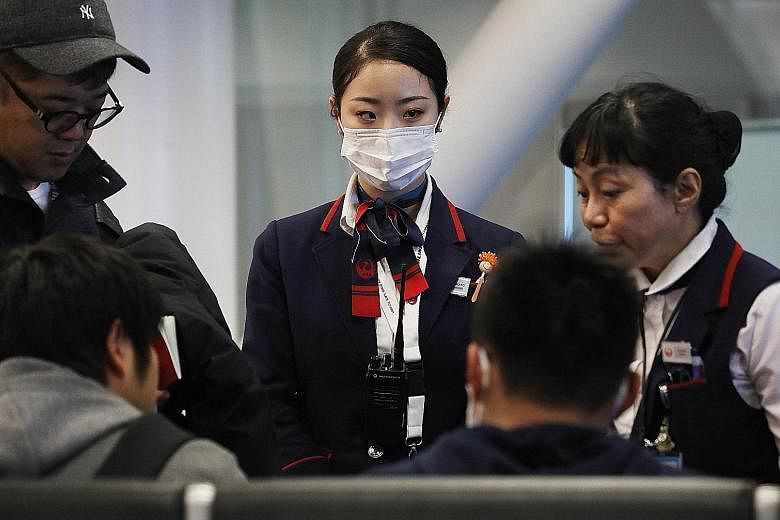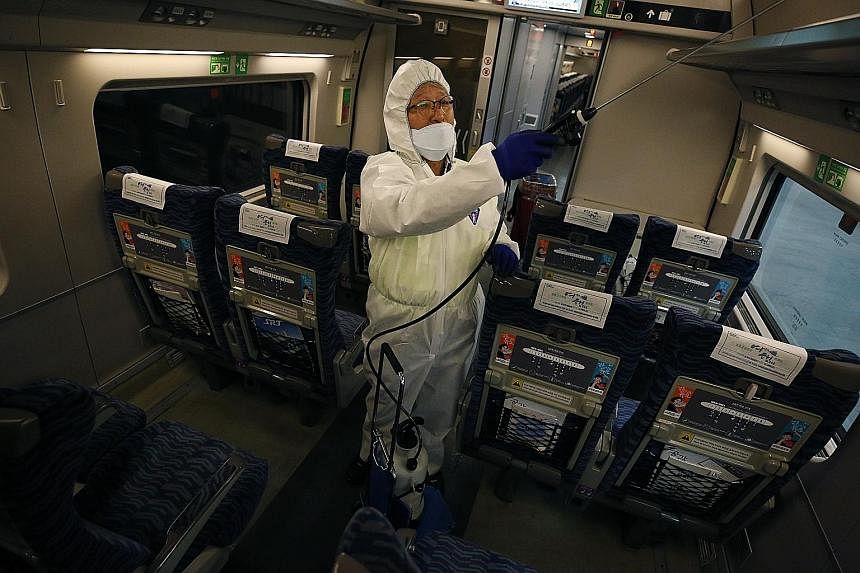GENEVA • The World Health Organisation (WHO) has said it was "a bit too early" to declare a new coronavirus a global health emergency as China put millions of people on lockdown amid an outbreak that has killed 26 people and infected more than 880.
Health officials fear the transmission rate could accelerate as hundreds of millions of Chinese travel at home and abroad during week-long holidays for Chinese New Year.
"It is a bit too early to consider that this is a public health emergency of international concern," WHO chief Tedros Adhanom Ghebreyesus said in Geneva on Thursday, adding that the organisation's Emergency Committee of 16 independent experts had been divided in its conclusion.
"Make no mistake, though, this is an emergency in China. But it has not yet become a global health emergency. It may yet become one."
He said China had taken measures which WHO believes are appropriate. "We hope they will be both effective and short in their duration... For the moment, the WHO does not recommend any broader restrictions on travel or trade."
Dr Peter Piot, a Handa Professor of Global Health and director of the London School of Hygiene and Tropical Medicine, said the outbreak was at a critical phase.
"Regardless of the decision not to declare this a public health emergency of international concern, intensified international collaboration and more resources will be crucial to stopping this outbreak in its tracks," he said.
"National authorities and the World Health Organisation will need to continue to monitor developments very closely."
The death toll in China due to the outbreak has risen to 26, with the number of confirmed cases also leaping to more than 880, the government said yesterday.
China's National Health Commission said the authorities were also examining 1,072 suspected cases of the virus.
China has effectively quarantined nearly 20 million people across Wuhan and some nearby cities in response to the virus, and announced measures to curb its spread nationwide.
Streets and shopping centres in Wuhan, a major industrial and transport hub, are now eerily quiet after the authorities told residents not to leave the city of 11 million, where most of the cases have been identified.
Dr Gauden Galea, the WHO's representative in Beijing, said: "The lockdown of 11 million people is unprecedented in public health history."
The newly identified coronavirus has created alarm because there are a number of unknowns surrounding it.
It is too early to know just how dangerous it is and how easily it spreads between people. There is no vaccine for the virus, which can spread through respiratory transmission.
Symptoms include fever, difficulty breathing and coughing, similar to many other respiratory illnesses.
Three research teams are to start work on developing a vaccine, said a global coalition set up to fight diseases.
Apart from restricting movement, Wuhan plans to build a new hospital in six days to treat patients, Beijing News reported, citing a construction company source.
Other cities were also taking steps to contain the virus.
Nearby Ezhou shut train stations.
Beijing cancelled large gatherings, including two Chinese New Year temple fairs, and closed the Forbidden City, the capital's most famous tourist attraction, to visitors until further notice.
The US State Department warned travellers to exercise increased caution in China as airports worldwide were screening passengers arriving from the country.
Five people were being tested in Scotland for the virus and one person in Belfast, showing symptoms, was being treated, Sky News reported.
Hong Kong, which has two confirmed cases, is turning two holiday camps into quarantine stations as a precaution.
Taiwan has banned anyone from Wuhan from visiting the island.
REUTERS, AGENCE FRANCE-PRESSE


